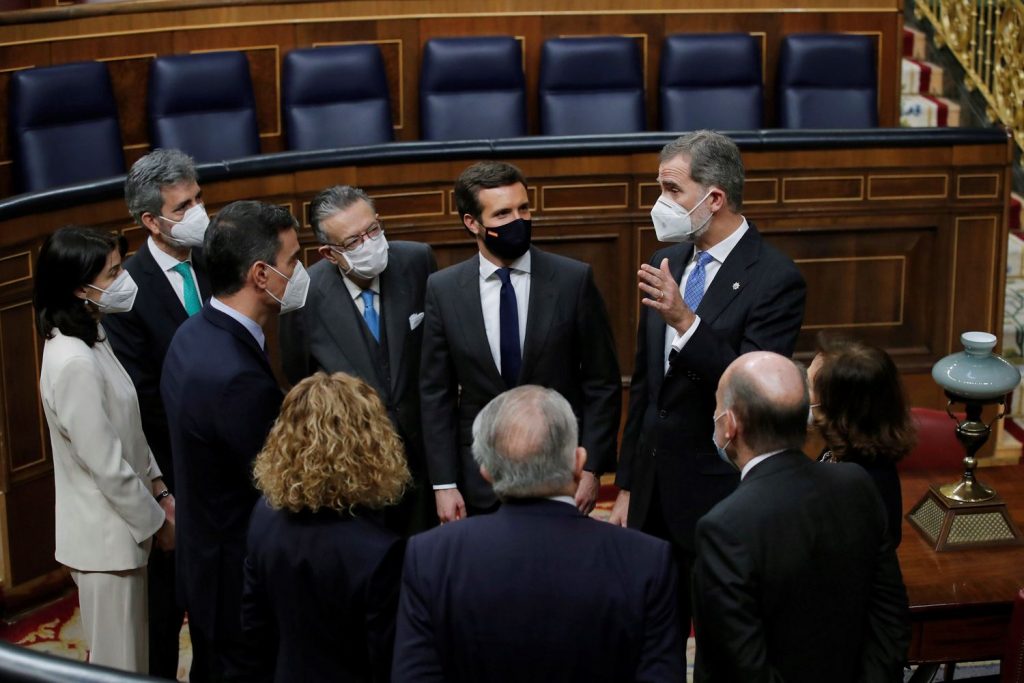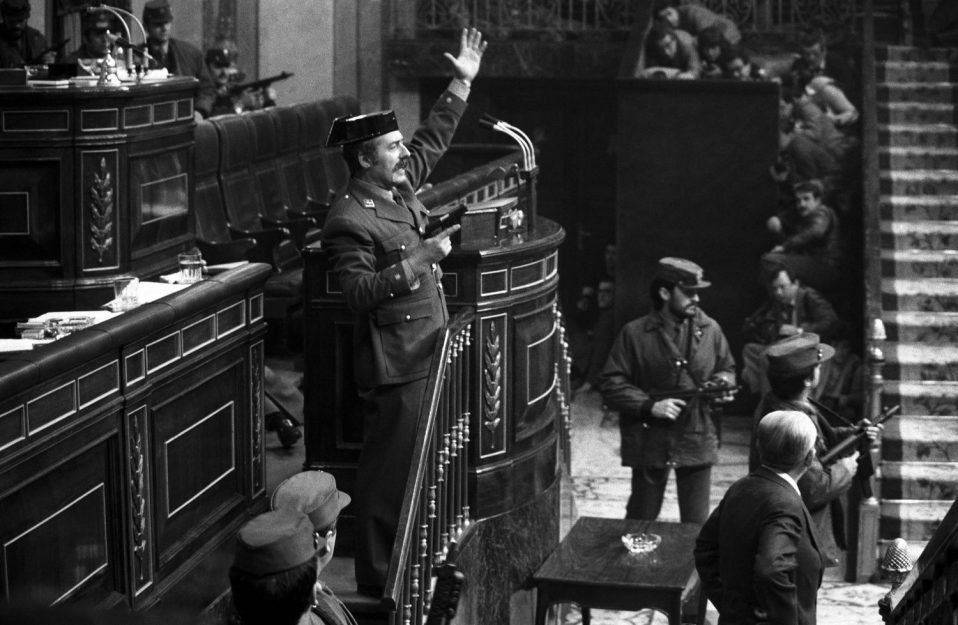23 Feb (ElPaisEnglish).- On the 40th anniversary of the day that Congress was stormed by the Civil Guard, the reigning monarch said his father’s actions were ‘decisive for the defense and triumph of democracy’
Speaking at a ceremony to commemorate the 40th anniversary of an attempted coup d’état in Spain, King Felipe VI paid tribute to the “resolve and authority” of his father, emeritus king Juan Carlos I during the night of February 23, 1981. The then-monarch’s actions, Felipe said, were “decisive for the defense and triumph of democracy.”
Today marked the first time that the Spanish king has expressly made reference to Juan Carlos since the latter left Spain last August in the midst of a growing scandal over his private finances. The speech was given by King Felipe at a solemn event in the Congress of Deputies, the lower house of parliament and the location where the coup attempt played out four decades ago.
The coup attempt was headed up by Lieutenant-Colonel Antonio Tejero, who led several hundred of his fellow Civil Guard officers into Congress.
“Before that unacceptable fracture of the legitimate and legal democratic order, King Juan Carlos I assumed his responsibility as head of state as well as his commitment to ensuring that all measures necessary were taken to maintain the constitutional order within the established law,” King Felipe continued, paraphrasing the televised message that Juan Carlos gave that night, and which contributed to the failure of the coup in a Spain that was in the later stages of moving from the days of the Francisco Franco dictatorship to a full democracy.
The coup attempt was headed up by Lieutenant-Colonel Antonio Tejero, who led several hundred of his fellow Civil Guard officers into Congress during a vote to elect a new prime minister. The officers fired their machine guns into the air as they stormed the chamber, and proceeded to hold the assembled ministers and other lawmakers hostage for nearly 20 hours overnight. Once it became clear that the coup was on the road to failure, however, the officers abandoned the attempt and the deputies were freed unharmed.
King Felipe was aged 13 when the coup attempt took place, and spent the night of the dramatic events by his father’s side. He pointed out in his speech on Tuesday that he was “a witness to that historic episode,” and that he learned the “immeasurable value that freedom has for the Spanish people.”
Speaking on Tuesday, King Felipe also sought to pay tribute to the then-prime minister, Adolfo Súarez, who died in 2014. He expressed his “admiration and gratitude” to the former politician, and also referred to the “long list of men and women, civilians and members of the military, that we all have in mind, who offered, along with the media, an example of courage and of loyalty to the institutions of state and our Constitution.”
As well as praising the “deep democratic convictions” of the parliamentarians and the members of the government held hostage that night, he also argued that the “rejection by institutions and citizens of a breakup of our framework of coexistence was decisive to halt and overcome that coup d’état.”
Juan Carlos I, who has been living in Abu Dhabi since leaving Spain last summer, was the key figure missing from the ceremony on Tuesday, which was also attended by Prime Minister Pedro Sánchez of the Socialist Party (PSOE) and his four deputy prime ministers, including Unidas Podemos leader Pablo Iglesias. The leader of the main opposition Popular Party (PP), Pablo Casado, was also in attendance, as were the spokespersons from far-right Vox and center-right Ciudadanos (Citizens), among others. Representatives from Unidas Podemos, a pro-Republican left-wing party that is the junior partner to the PSOE in the coalition government, were present but did not applaud the king’s speech.
Missing from today’s event were representatives from regional nationalist parties such as the Catalan Republican Left (ERC) and the Basque Nationalist Party (PNV). Six of these groups (not including the PNV) held a press conference in Congress at which they read a joint statement claiming that 23-F, as the coup attempt is known after the date it took place, was “an operation of the state that allowed for the regime of ’78 to be saved,” condemning it as a “padlock” for democratic advances. The PNV spokesperson, Aitor Esteban, justified his absence claiming that the events of that day are still very cloudy and that a refusal to reform Spain’s Official Secrets Act means that the facts will never come to light.
Royal scandal
Last March, Felipe renounced any future inheritance from his father after the allegations of financial irregularities involving Swiss bank accounts and multi-million-euro donations from Saudi Arabia emerged. The reigning monarch also stripped his father of his annual stipend of €194,232, the royal household announced in a statement at the time. In December, Juan Carlos announced via his lawyers that he had paid €678,393 to the Spanish tax authorities to settle debt on previously undisclosed income.







Post a comment